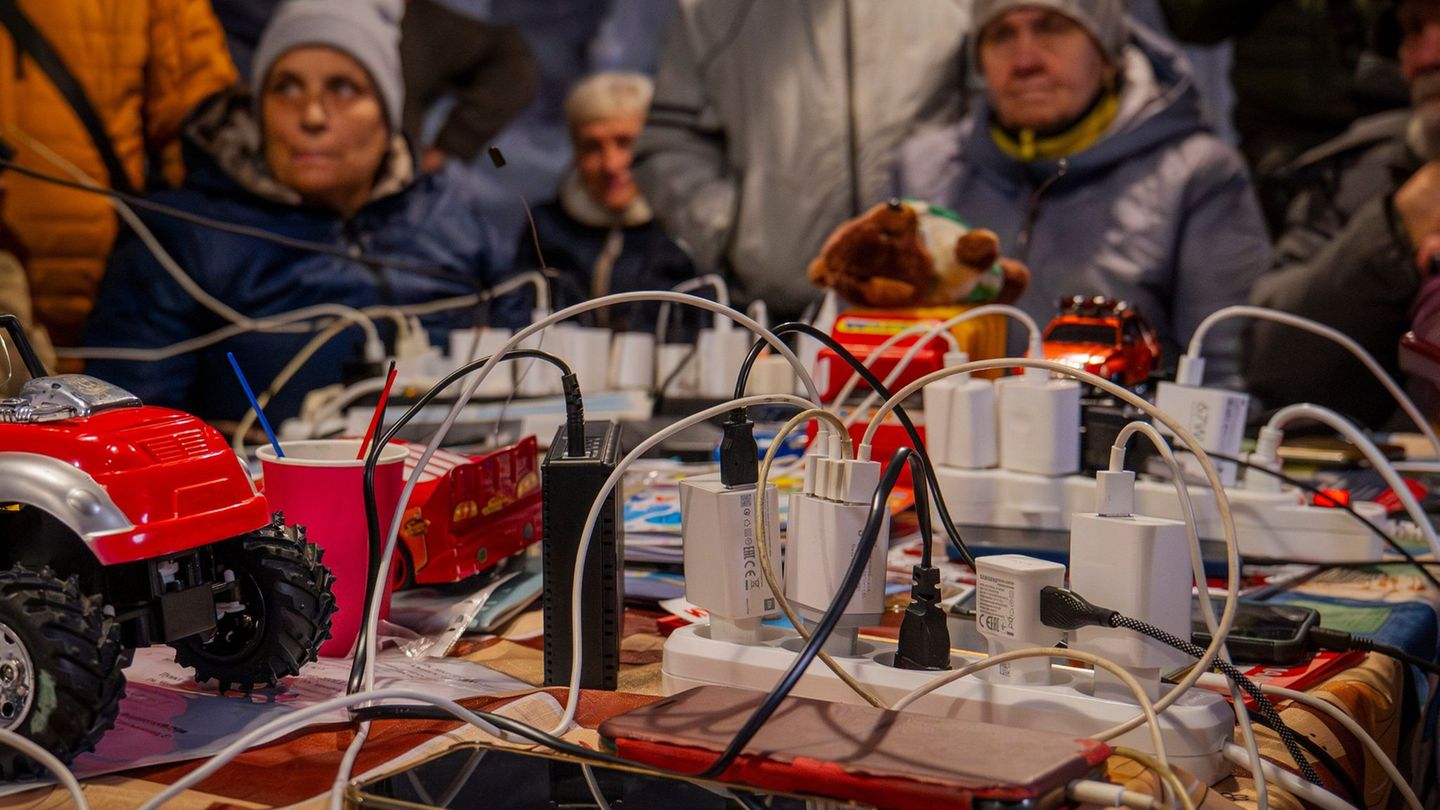Difficult elections are coming up in three eastern German states – and the Wagenknecht alliance has a good chance. Can it also become a power factor? CDU leader Merz is making a political statement.
CDU leader Friedrich Merz has highlighted the substantive differences between his party and the Sahra Wagenknecht (BSW) alliance and triggered a debate about the power options in the upcoming state elections.
He sees “no overlap at all in politics with this group, assuming it becomes relevant at some point,” said Merz in Berlin. “We will have to look at everything else in the light of the election results.” Wagenknecht countered similar previous interview statements by Merz with criticism. The CDU in Thuringia signaled openness to talks with the BSW.
Elections are scheduled for September in Thuringia, as well as in Saxony and Brandenburg. Because the AfD was the strongest force in all three states recently, forming a government is expected to be difficult. The BSW achieved double-digit results in all three states in the European elections. If the party, which was only founded in January, can repeat this in the autumn, it could become a force to be reckoned with.
Merz was asked on ARD whether he was prepared to consider a collaboration or coalition with the BSW in order to prevent AfD prime ministers in the east. The CDU leader then said: “That is absolutely clear, we have always said that. We do not work with such right-wing extremist and left-wing extremist parties.” Both apply to Wagenknecht: “She is right-wing extremist on some issues, but left-wing extremist on others.”
“Political Kindergarten”
Party founder Wagenknecht said: “What Friedrich Merz is doing is political kindergarten and will further weaken the CDU in the East.” The BSW chairwoman, for her part, lashed out at Merz: “Olaf Scholz is the worst chancellor in the history of the Federal Republic, but Friedrich Merz would not be an improvement – especially with the Greens as a coalition partner.” BSW General Secretary Christian Leye told “Welt”: “It’s not as if we are desperately wishing for a government constellation with the CDU.” But Merz must also recognize the political realities in East Germany.
Merz said before a parliamentary group meeting in Berlin that he had pointed out “that we really have no agreement with this group on any political issues.” Wagenknecht’s positions on foreign and economic policy were “really completely incompatible with our positions.” He pointed out that the BSW “obviously stands on the far right on some issues, and on the far left on others.”
Merz said he had said something about substantive issues “from the perspective of federal politics.” “We don’t need to concern ourselves with this question any further. We will do that if there are other results.” Then, of course, he will also speak to the CDU state chairmen about the question and whether there are other points of view.
CDU state leader Voigt praises BSW state leader Wolf
Thuringian CDU leader Mario Voigt, who wants to become prime minister in the fall and needs coalition partners for this, said: “Friedrich Merz has spoken for the federal level.” In the Free State, they want political change and are first looking at which specific issues are of concern to people. “Then we will hold discussions about who we can work with to solve the problems together.”
Voigt had words of praise for the BSW state chairwoman Katja Wolf in the “Stern” magazine: “I have a reasonable line of communication with Katja Wolf, who I have always seen as a pragmatic local politician.” Wolf and the BSW co-chairman Steffen Schütz criticized: “After Friedrich Merz has not kept his promise to significantly weaken the AfD, he is now erecting another firewall.” Thuringia does not need advice from Berlin, but sensible and reliable politics.
Left and right positions
Wagenknecht represents more left-wing positions on social and economic policy, such as the demand for higher pensions, higher minimum wages and redistribution. On the other hand, she is putting the brakes on climate protection and is calling for a limit on migration and social benefits for immigrants. In foreign policy, the BSW wants an end to German military aid for Ukraine and negotiations with Russia.
She has so far left open whether Wagenknecht would form a coalition with the CDU. She says that the decisive factor is that the BSW will not support “business as usual”. The CDU ruled out coalitions or similar forms of cooperation with the AfD and the Left Party years ago by resolution of its party conference.
CSU regional group leader Alexander Dobrindt said it was not surprising to say that a party like the BSW, which clearly relies on Russia, President Putin and communism, could not be a coalition partner for the Union. In general, he advised the Union to rely as much as possible on its own strength in the upcoming election campaigns.
SPD parliamentary group leader Rolf Mützenich said: “We are not looking for cooperation with Sahra Wagenknecht because Sahra Wagenknecht and her party have absolutely no connections to the democratic camp.” Unfortunately, the BSW is relying more on division than on the interaction of different forces.
Source: Stern
I have been working in the news industry for over 6 years, first as a reporter and now as an editor. I have covered politics extensively, and my work has appeared in major newspapers and online news outlets around the world. In addition to my writing, I also contribute regularly to 24 Hours World.




